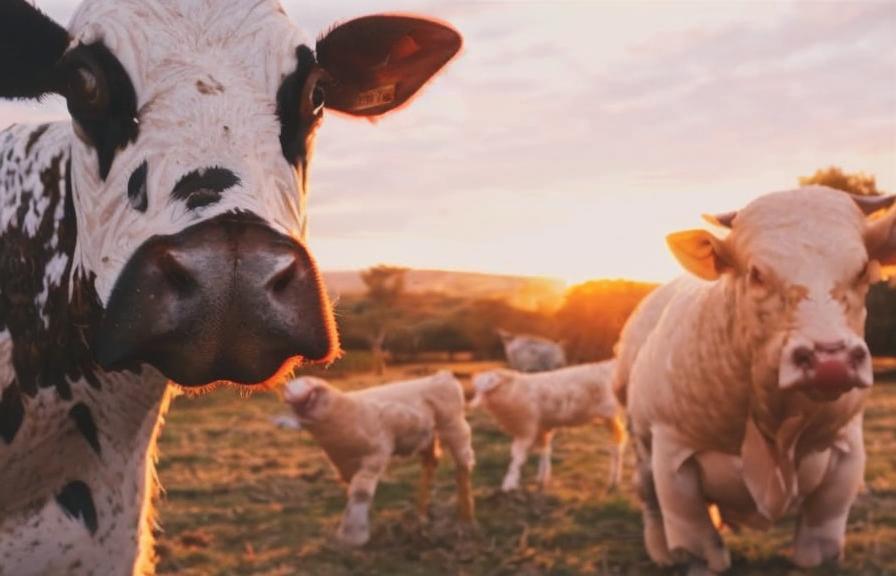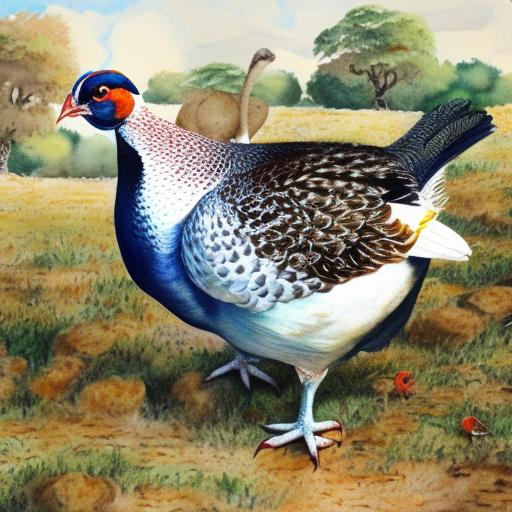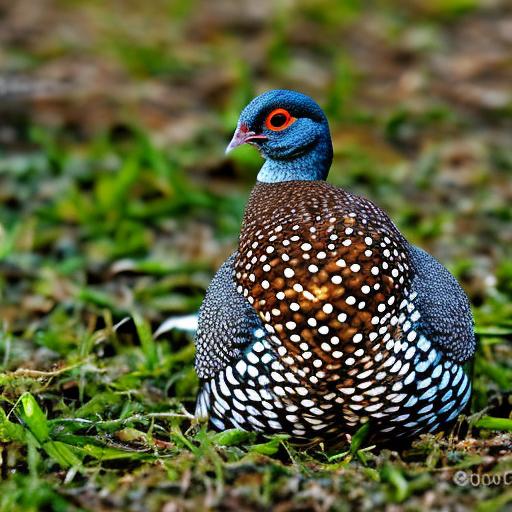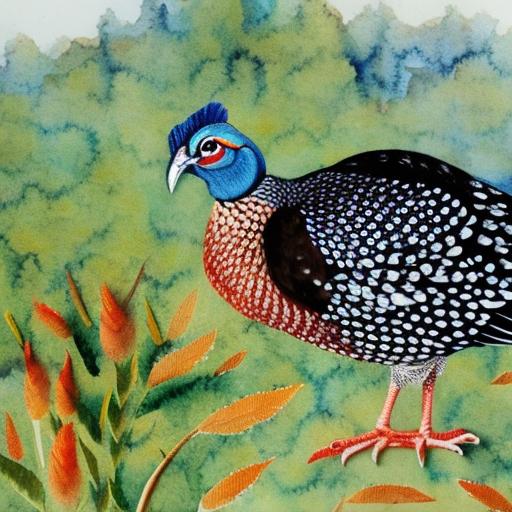Breeding guinea fowl for meat production is a lucrative venture that has gained popularity in recent years. Guinea fowl are known for their lean and flavorful meat, making them a sought-after choice for many consumers. They are also relatively easy to raise and require minimal maintenance, making them an ideal option for small-scale farmers and homesteaders looking to diversify their livestock. Breeding guinea fowl for meat can be a profitable business, as the demand for their meat continues to grow due to its unique taste and nutritional benefits. In this article, we will explore the various aspects of breeding guinea fowl for meat production, including selecting the right breeding stock, housing and care, breeding and incubation process, raising guinea fowl chicks, feeding and nutrition, as well as processing and marketing guinea fowl meat.
Guinea fowl are native to Africa and have been domesticated for centuries. They are known for their ability to forage for insects and pests, making them an excellent addition to any farm or homestead. In addition to their pest control abilities, guinea fowl are also valued for their meat, which is lean, high in protein, and rich in flavor. As consumer interest in locally sourced and sustainable meat continues to grow, guinea fowl meat has become a popular choice for many people looking for an alternative to traditional poultry options. With the right knowledge and resources, breeding guinea fowl for meat production can be a rewarding and profitable endeavor.
Key Takeaways
- Breeding guinea fowl for meat can be a profitable venture for farmers
- Select breeding stock with good health, size, and temperament for successful meat production
- Provide adequate housing and care to ensure the well-being of breeding guinea fowl
- Understand the breeding and incubation process to successfully hatch and raise guinea fowl chicks
- Proper feeding and nutrition are essential for the growth and development of guinea fowl for meat production
- Learn about processing and marketing options for guinea fowl meat to maximize profits
Selecting the Right Breeding Stock
Selecting the right breeding stock is crucial for successful guinea fowl meat production. When choosing breeding stock, it is important to select birds that are healthy, robust, and have desirable traits such as good conformation and temperament. Look for birds that are active, alert, and free from any signs of disease or deformities. It is also important to select birds that come from reputable breeders or sources to ensure the genetic quality of the stock.
When selecting breeding stock, consider the breed of guinea fowl that best suits your production goals. There are several different breeds of guinea fowl, each with its own unique characteristics and traits. For meat production, some of the most popular breeds include the French Guinea, White Guinea, and Pearl Guinea. These breeds are known for their fast growth rates, high meat yields, and overall suitability for meat production. Consider the specific needs of your production system and choose breeding stock that aligns with your goals and objectives.
In addition to selecting the right breed, it is also important to consider the age and reproductive history of the breeding stock. Younger birds are generally more fertile and have a longer reproductive lifespan, making them a good choice for breeding purposes. It is also important to select birds that have a proven track record of successful reproduction and good maternal instincts. By carefully selecting the right breeding stock, you can set the foundation for a successful guinea fowl meat production operation.
Housing and Care for Breeding Guinea Fowl
Proper housing and care are essential for the health and well-being of breeding guinea fowl. When it comes to housing, guinea fowl require a secure and predator-proof enclosure that provides adequate space for exercise and foraging. The housing should also provide protection from the elements, such as extreme temperatures and inclement weather. Consider providing a sheltered area within the enclosure where the birds can roost at night and lay their eggs in a safe and comfortable environment.
In addition to providing suitable housing, it is important to provide proper care and management for breeding guinea fowl. This includes regular health checks, access to clean water, and a balanced diet that meets their nutritional needs. Guinea fowl are natural foragers and should have access to a diverse range of insects, seeds, and vegetation to supplement their diet. It is also important to provide grit or coarse sand to help with digestion and ensure proper gut health.
When caring for breeding guinea fowl, it is important to monitor their behavior and overall well-being. Look out for any signs of illness or distress, such as lethargy, loss of appetite, or abnormal behavior. Regularly clean and maintain their housing to prevent the buildup of waste and reduce the risk of disease. By providing proper housing and care for breeding guinea fowl, you can ensure the health and productivity of your flock.
Breeding and Incubation Process
The breeding and incubation process is a critical stage in guinea fowl meat production. Guinea fowl are seasonal breeders, with peak reproductive activity occurring in the spring and summer months. During this time, it is important to provide suitable nesting areas within the housing enclosure where the hens can lay their eggs in a safe and comfortable environment. Guinea fowl hens are known for their strong maternal instincts and will diligently incubate their eggs until they hatch.
In some cases, artificial incubation may be necessary to maximize egg production and hatch rates. This involves collecting eggs from the nesting areas and placing them in an incubator set at the appropriate temperature and humidity levels. It is important to carefully monitor the incubation process and provide proper turning of the eggs to ensure even heat distribution and optimal development.
Once the eggs hatch, it is important to provide proper care for the guinea fowl chicks to ensure their health and survival. This includes providing a warm and draft-free brooding area with access to heat lamps or brooders to maintain the appropriate temperature. It is also important to provide access to clean water and a balanced chick starter feed to support their growth and development. By carefully managing the breeding and incubation process, you can maximize the reproductive potential of your guinea fowl flock and ensure a steady supply of chicks for meat production.
Raising Guinea Fowl Chicks for Meat
Raising guinea fowl chicks for meat production requires careful attention to their growth and development. Guinea fowl chicks are relatively independent from a young age and are natural foragers, making them well-suited for free-range or pasture-based production systems. However, it is important to provide proper care and management to ensure their health and well-being as they grow.
When raising guinea fowl chicks, it is important to provide a suitable brooding area with access to heat lamps or brooders to maintain the appropriate temperature. This will help them stay warm and comfortable during their early stages of development. It is also important to provide access to clean water and a balanced chick starter feed that meets their nutritional needs. Guinea fowl chicks have specific dietary requirements that differ from other poultry species, so it is important to provide a feed that is specifically formulated for their needs.
As they grow, guinea fowl chicks will begin to explore their surroundings and develop their natural foraging instincts. Providing access to outdoor areas where they can roam and forage for insects, seeds, and vegetation will help support their growth and development. It is important to monitor their behavior and overall well-being as they grow, providing any necessary care or intervention as needed. By providing proper care and management for guinea fowl chicks, you can ensure their healthy growth and development for meat production.
Feeding and Nutrition for Meat Production

Feeding and nutrition play a crucial role in the meat production potential of guinea fowl. Guinea fowl are natural foragers with specific dietary requirements that differ from other poultry species. They require a balanced diet that provides essential nutrients such as protein, vitamins, minerals, and amino acids to support their growth and development. When it comes to feeding guinea fowl for meat production, it is important to provide a high-quality feed that meets their nutritional needs.
Guinea fowl have a high protein requirement compared to other poultry species, making it important to provide a feed that is rich in protein sources such as soybean meal or fish meal. In addition to protein, guinea fowl also require access to grit or coarse sand to aid in digestion and ensure proper gut health. Providing access to clean water at all times is also essential for maintaining their overall health and well-being.
In addition to commercial feed options, guinea fowl are natural foragers that will seek out insects, seeds, and vegetation as part of their diet. Providing access to outdoor areas where they can roam and forage will help supplement their diet with natural sources of nutrition. It is important to monitor their feeding behavior and adjust their diet as needed based on their growth stage and production goals. By providing a balanced diet that meets their nutritional needs, you can support the meat production potential of your guinea fowl flock.
Processing and Marketing Guinea Fowl Meat
Processing and marketing guinea fowl meat is an important aspect of meat production that requires careful attention to detail. Once the guinea fowl reach market weight, they can be processed for meat production through methods such as butchering or live sales. It is important to follow proper processing procedures to ensure food safety and quality standards are met.
When marketing guinea fowl meat, it is important to highlight its unique taste, lean profile, and nutritional benefits compared to other poultry options. Consider targeting niche markets such as local restaurants, specialty grocery stores, or direct-to-consumer sales through farmers’ markets or online platforms. Highlighting the natural and sustainable production methods used in raising guinea fowl can also be a selling point for consumers looking for ethically sourced meat options.
In addition to marketing the meat itself, consider offering value-added products such as sausages, jerky, or marinated cuts to appeal to a wider range of consumers. Building relationships with local chefs or food producers can also help create opportunities for collaboration or partnerships that can help expand your market reach. By carefully planning your processing and marketing strategies, you can maximize the potential of your guinea fowl meat production operation.
In conclusion, breeding guinea fowl for meat production offers a unique opportunity for small-scale farmers and homesteaders looking to diversify their livestock operations. With careful attention to selecting the right breeding stock, providing proper housing and care, managing the breeding process, raising healthy chicks, ensuring proper feeding and nutrition, as well as strategic processing and marketing efforts – breeding guinea fowl for meat can be a rewarding venture with potential for profitability in today’s growing market for sustainable meat options.
If you’re considering breeding guinea fowl for meat, you’ll want to ensure they have a suitable coop for shelter and protection. Poultry Wizard offers valuable insights on coop design and maintenance in their article “Turning a Shed into a Chicken Coop.” This resource provides practical tips for repurposing existing structures to create a comfortable and secure environment for your guinea fowl, complementing your efforts to raise them for meat production.
FAQs
What is guinea fowl?
Guinea fowl are a type of poultry bird that are native to Africa. They are known for their distinctive spotted feathers and are often raised for their meat.
Why breed guinea fowl for meat?
Guinea fowl are bred for meat because they are known for their lean and flavorful meat. They are also relatively easy to raise and can be a profitable venture for farmers.
What are the benefits of breeding guinea fowl for meat?
Breeding guinea fowl for meat can provide a sustainable source of protein, as well as a potential source of income for farmers. Additionally, guinea fowl are known for their ability to control pests such as ticks and insects, making them a valuable addition to a farm ecosystem.
What are some considerations for breeding guinea fowl for meat?
When breeding guinea fowl for meat, it is important to consider factors such as housing, feeding, and disease management. Additionally, it is important to have a market for the meat and to consider the processing and marketing aspects of the business.
What is the typical breeding process for guinea fowl?
Guinea fowl typically reach sexual maturity at around 6-8 months of age. Breeding usually occurs in the spring and summer months, and the female guinea fowl will lay eggs in a nest on the ground. The eggs take about 26-28 days to hatch, and the chicks are able to forage for food shortly after hatching.
What are some common challenges in breeding guinea fowl for meat?
Some common challenges in breeding guinea fowl for meat include predation, disease, and finding a market for the meat. Additionally, guinea fowl can be noisy and may not be suitable for all farming environments.
Meet Walter, the feathered-friend fanatic of Florida! Nestled in the sunshine state, Walter struts through life with his feathered companions, clucking his way to happiness. With a coop that’s fancier than a five-star hotel, he’s the Don Juan of the chicken world. When he’s not teaching his hens to do the cha-cha, you’ll find him in a heated debate with his prized rooster, Sir Clucks-a-Lot. Walter’s poultry passion is no yolk; he’s the sunny-side-up guy you never knew you needed in your flock of friends!







